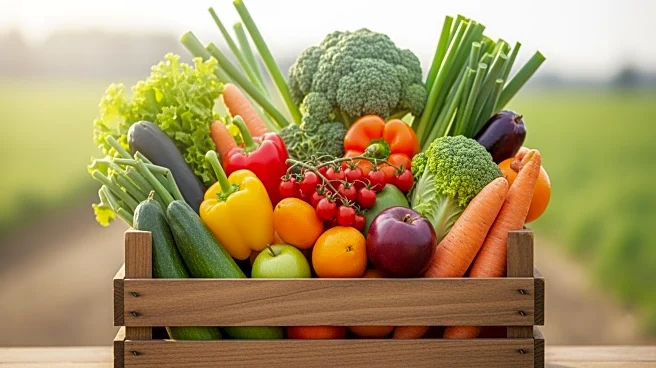What's Happening?
Agriculture Secretary Brooke Rollins has announced a strategic plan to import beef from Argentina, aiming to stabilize consumer prices in the United States. The initiative is set to bring up to 500,000
tons of beef into the US market annually, addressing the issue of high beef prices caused by fluctuating domestic production. While this move is expected to benefit consumers by increasing supply and potentially lowering prices, it has sparked concerns among domestic cattle producers. The National Cattlemen’s Beef Association has expressed opposition, fearing that the influx of imported beef could depress market prices and negatively impact the earnings and market share of US cattle farmers.
Why It's Important?
The US beef import plan holds significant implications for both consumers and domestic producers. For consumers, the increased supply could lead to more affordable beef prices, alleviating the financial burden of high food costs. However, for domestic cattle producers, the plan poses a threat to their economic stability. The potential oversupply of beef could lead to lower market prices, reducing their earnings and competitiveness. This situation highlights the delicate balance between consumer benefits and producer interests, with broader impacts on agricultural policy and market dynamics. Investors and traders are closely monitoring these developments, as they could influence future investment decisions and market sentiment.
What's Next?
The implementation of the US beef import plan will likely lead to ongoing debates and policy adjustments. Stakeholders, including domestic producers and consumer advocacy groups, may push for measures to protect local farmers while ensuring consumer benefits. The government might consider additional support or subsidies for domestic producers to mitigate potential negative impacts. Monitoring market reactions and price fluctuations will be crucial in assessing the plan's effectiveness and making informed policy decisions. The situation presents an opportunity for further dialogue on balancing import strategies with domestic agricultural interests.
Beyond the Headlines
The US beef import plan raises ethical and economic questions about the impact of global trade on local industries. While the initiative aims to address consumer needs, it also challenges the sustainability of domestic production. The plan could lead to long-term shifts in agricultural policy, emphasizing the need for comprehensive strategies that support both consumer affordability and producer viability. This development underscores the complexity of global trade dynamics and the importance of considering diverse stakeholder perspectives in policy-making.









